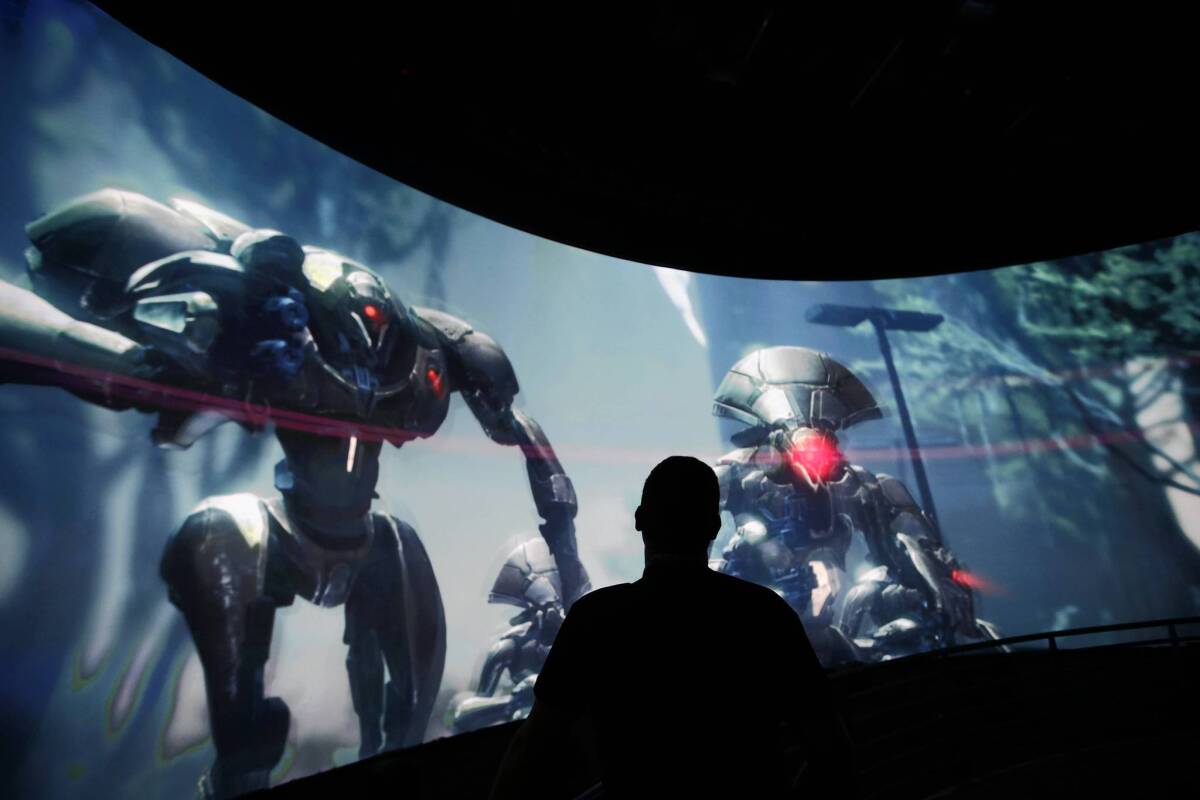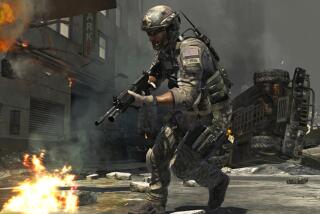Activision, investors to buy back most of Vivendi’s stake

Activision Blizzard Inc. and a group of investors led by its top executives are buying most of Vivendi’s stake in the world’s largest video game publisher in an $8.2-billion transaction.
The deal would free the Santa Monica company from the financial woes of its French corporate parent and enable it to focus on the fast-evolving gaming industry.
Activision said late Thursday that it would acquire 429 million shares from the Paris conglomerate for about $5.83 billion in cash, or $13.60 a share.
Separately, Activision Chief Executive Bobby Kotick, Co-Chairman Brian Kelly and their investor group would buy about 172 million shares from Vivendi at a cost of $2.34 billion. The managers would contribute a combined $100 million of their own money.
PHOTOS: Hollywood Backlot moments
The combined transactions would reduce Vivendi’s majority stake in Activision Blizzard to 12% when the deal closes, which is expected in September.
“We expect to emerge from this transaction even stronger than we are today,” Kotick said Friday in a call with Wall Street investors. “An independent company with a best-in-class franchise portfolio and the focus and flexibility to drive long-term shareholder value and expand our leadership position.”
Investors reacted positively to the announcement, driving Activision Blizzard shares up 15% to close at $17.46 on Friday.
Vivendi has been looking to shed assets. The water utility turned media conglomerate is struggling under the weight of $17 billion in debt.
The company said it plans to use the proceeds from the Activision Blizzard transaction to pay down its debt. Earlier this week, it said it was in discussions to sell its controlling interest in the North African phone company Maroc Telecom for about $5.5 billion.
Vivendi sold another of its Hollywood assets, its minority stake in NBCUniversal, in 2010. It plans, though, to retain its holdings in music, television and cinema. It owns the world’s largest recorded music company, Universal Music Group, and a pay-TV firm, Canal Plus.
ON LOCATION: Where the cameras roll
The fate of Activision Blizzard has been unsettled since last July, when Vivendi began working with investment bankers to explore the sale of the video game giant.
“Now the speculation is finally over,” said Doug Creutz, media analyst for Cowen & Co. “This resolves the situation in a way that is going to be favorable to shareholders.”
Vivendi acquired its majority stake in Activision in a 2008 deal intended to create a more powerful rival to Electronic Arts. Its investment brought together Activision, maker of such popular console games as “Call of Duty,” with Vivendi’s Blizzard Entertainment unit, creator of the online role-playing game “World of Warcraft.”
“Five years ago, we made one of the best decisions in the company’s history when we joined forces with Blizzard Entertainment,” Kotick said during the investor call.
“By bringing Activision and Blizzard together, we united in one company some of the best creative and business talent in the industry, and some of the most important entertainment franchises in the world,” he said.
Kotick said Activision Blizzard has achieved continued success with such bestselling titles as “Skylanders Giants” and “Call of Duty: Black Ops II,” which reached $1 billion in revenue faster than James Cameron’s blockbuster movie “Avatar.” He said the transaction will make the game company independent once again, leaving it with more flexibility in charting its future.
The transaction largely frees Activision from Vivendi, which rolled up operating losses in its games business in the years before the 2008 merger with Activision, said Wedbush Securities video game analyst Michael Pachter.
“This is good,” Pachter said, “because ... you’re taking out a clueless third-party investor that had control.”
Activision Blizzard is to emerge from the deal with more than $3 billion of cash on its balance sheets.
The deal clears the way for Activision to focus on challenges the industry is grappling with, including how to allocate its development resources across the next generation of game consoles: Microsoft’s Xbox One, Sony’s PlayStation 4 and Nintendo’s Wii U. Another question for Activision is whether to enter the fast-growing field of “casual” games played on smartphones and tablets.
“They are facing the same secular challenges that everyone’s facing,” Digital World Research CEO P.J. McNealy said.
“One is they have to place their resources behind the Xbox One, the PlayStation 4 or the Wii U and figure out what’s the right combination. That’s a hard bet early on,” he said. “And two, they really have to position themselves to take advantage of the mobile platforms. That requires a different development tool set that they, by in large, don’t have.”
After the deal closes, Vivendi’s representatives on the board — including Vivendi Chief Financial Officer Philippe G.H. Capron, its management board Chairman Jean-Francois Dubos and Universal Music Group Chairman Lucian Grainge — will step down, according to a filing with the U.S. Securities and Exchange Commission.
Kotick told Wall Street analysts that a nominating committee would identify the independent directors and that he and Kelly would serve as board representatives for the ASAC investment group.
Separately, Activision released preliminary second-quarter results, reporting revenue of $1.05 billion, down slightly from $1.08 billion in the same quarter last year. It posted earnings of 28 cents a share, up from 16 cents.






